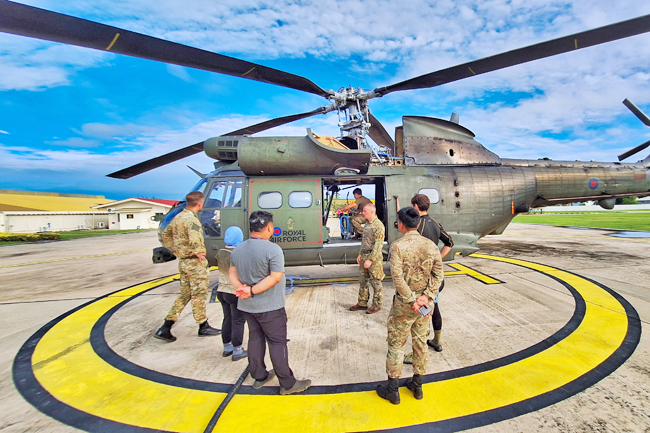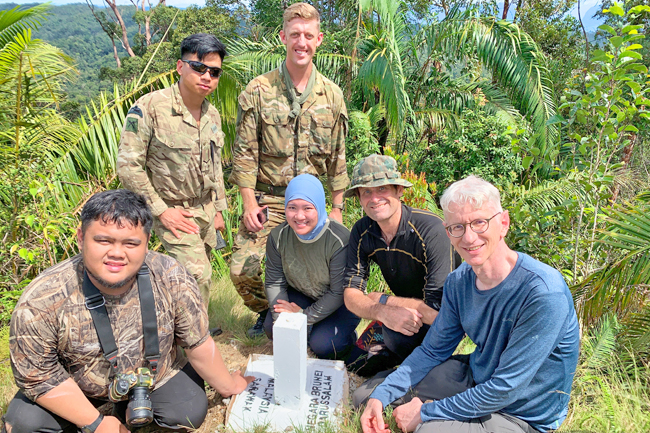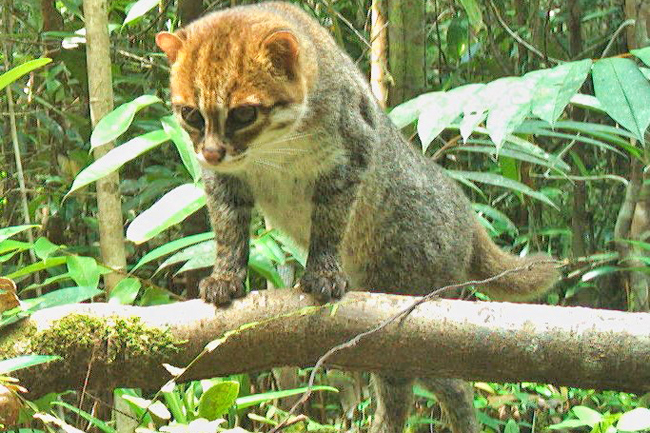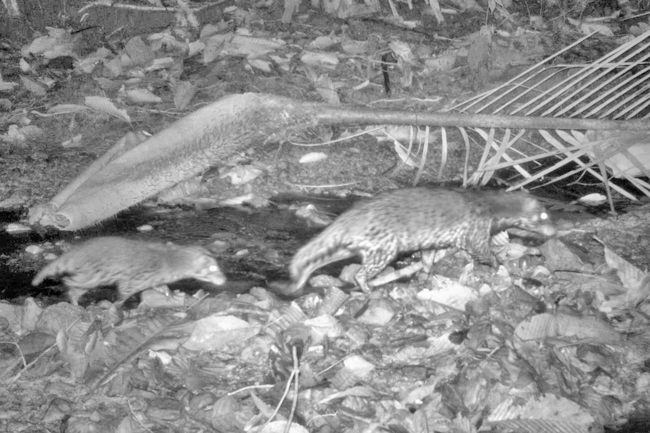The Royal Air Force (RAF) lent a helping hand to a research team from Universiti Brunei Darussalam (UBD) in setting up camera traps as part of a collaborative study to assess the impact of live firing in training areas on mammalian wildlife in remote areas of the Sultanate.
Pilots from 203 ‘Tiger’ Squadron RAF flying the iconic Puma Helicopter are based in the country as part of the British Forces Brunei (BFB) garrison specialising in jungle warfare and emergency response operations in the Indo-Pacific.
Their flying expertise combined with WO2 Troy Cole’s jungle knowledge allow them to access the remote Ulu Tutong training area.
“While the core business of BFB lies in military jungle operations, our access to the deep forest through RAF support allows us to work with the university in aid of conservation – something that is important to everyone,” said BFB’s advisor from the Small Arms School Corps WO1 Cole. The visit to Ulu Tutong means the most challenging of BFB’s five training areas that the group has been visiting.
Although there has yet to be data from the area, BFB noted that data collected from the other training areas are encouraging, with four local cat species having been recorded as well as rare mammal and bird species, such as the otter civet and Bornean ground-cuckoo captured on camera.




One concerning observation is the scarcity of wild boars in the area, which may be due to the African Swine Flu which devastated the populations of the wild boars across the region.
“The collaboration, led by Dr Salwa binti Khalid, represents an unprecedented opportunity for UBD scientists to gather valuable data in seldom-visited regions of Brunei,” said Professor Ulmar Grafe.
The university study replicates a similar project undertaken in Belize, where the British Army also runs jungle training.
The project began in 2017 and was done with support from Panthera – an international charity dedicated to the research and conservation of big cats.
Initial data shows that in a long-term capacity, historic use of the sites by the military for live firing has had a negligible impact on species ecology or behaviour within the sites studied.
The data collected will enable BFB to refine its approach and management of military training within the jungle.
It will also add vital information about wildlife to the National Archives of Brunei Darussalam and provide information about other users of the jungle, such as illegal loggers and hunters.
The camera trapping project is funded by the Defence Infrastructure Organisation, the estate management organisation of the Ministry of Defence in the United Kingdom. – Daniel Lim


